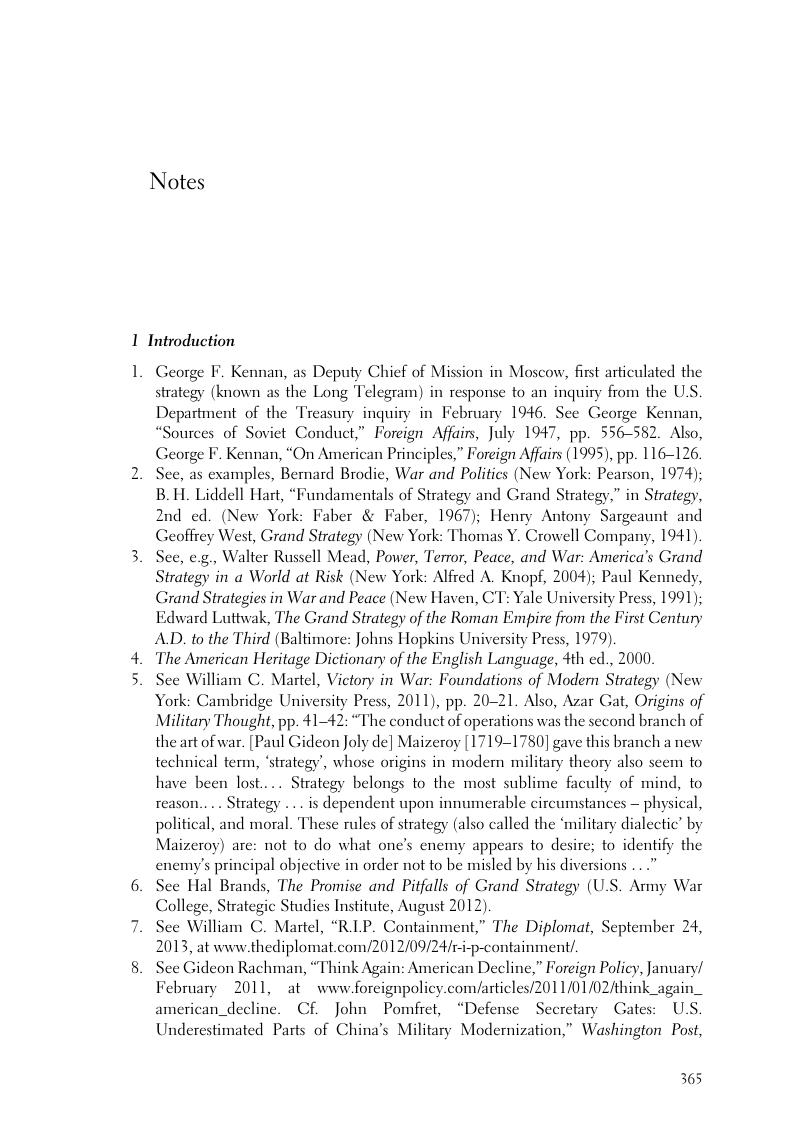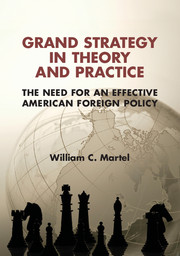Notes
Published online by Cambridge University Press: 05 January 2015
Summary

- Type
- Chapter
- Information
- Grand Strategy in Theory and PracticeThe Need for an Effective American Foreign Policy, pp. 365 - 518Publisher: Cambridge University PressPrint publication year: 2015

